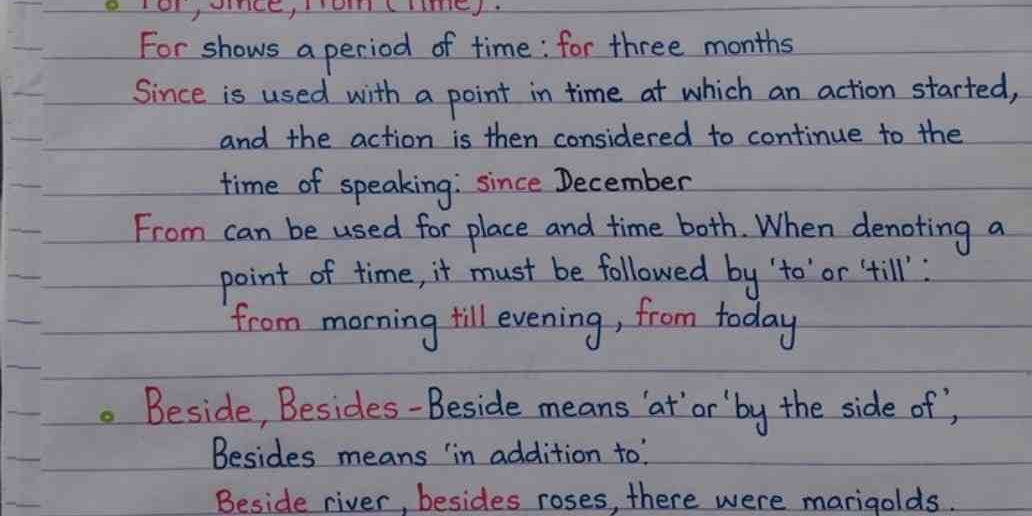What are the differences between 'for', 'since', and 'from' in terms of usage? Also, explain 'beside' and 'besides'.

Understand the Problem
The question discusses the usage of prepositions related to time and place, specifically 'for', 'since', 'from', and 'beside', explaining their meanings and contexts for correct usage.
Answer
'For' shows duration; 'since' indicates a starting point; 'from' denotes a start, often paired with 'to.' 'Beside' is 'next to'; 'besides' is 'in addition to.'
The differences in usage are: 'For' indicates a period of time (e.g., for three months). 'Since' refers to a starting point that continues to now (e.g., since December). 'From' is used for starting points, often with 'to' or 'till' in time (e.g., from morning till evening). 'Beside' means 'next to' or 'by.' 'Besides' means 'in addition to.'
Answer for screen readers
The differences in usage are: 'For' indicates a period of time (e.g., for three months). 'Since' refers to a starting point that continues to now (e.g., since December). 'From' is used for starting points, often with 'to' or 'till' in time (e.g., from morning till evening). 'Beside' means 'next to' or 'by.' 'Besides' means 'in addition to.'
More Information
'For' is used with durations, 'since' emphasizes continuity from a past point, and 'from' sets a starting point often linked to an end time. 'Beside' and 'besides' differ in spatial and additional contexts, respectively.
Tips
Avoid using 'since' with durations—that's for 'for.' Remember, 'beside' is spatial, while 'besides' adds information.
Sources
- What is the difference between since, for and from? - Quora - quora.com
- Beside vs. Besides—How to Use Each - Grammarly - grammarly.com
- For vs. Since - Woodward English - woodwardenglish.com
AI-generated content may contain errors. Please verify critical information